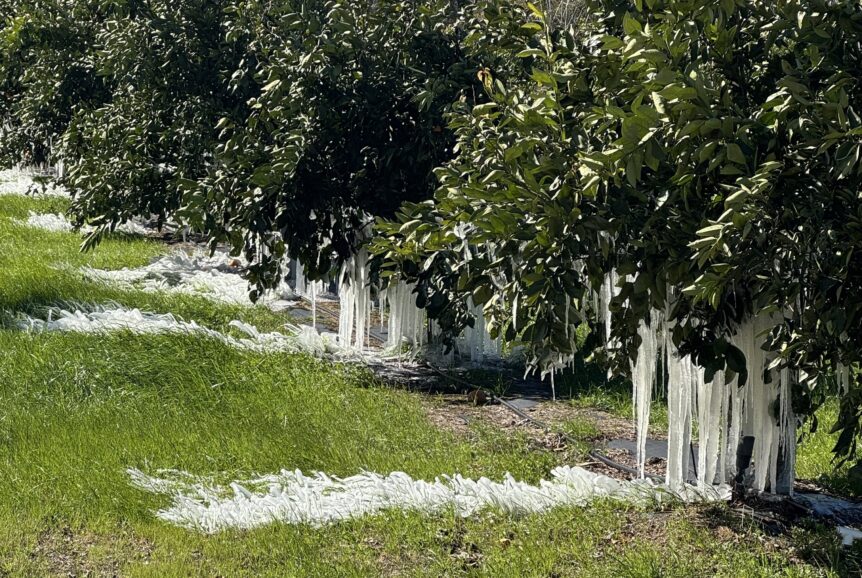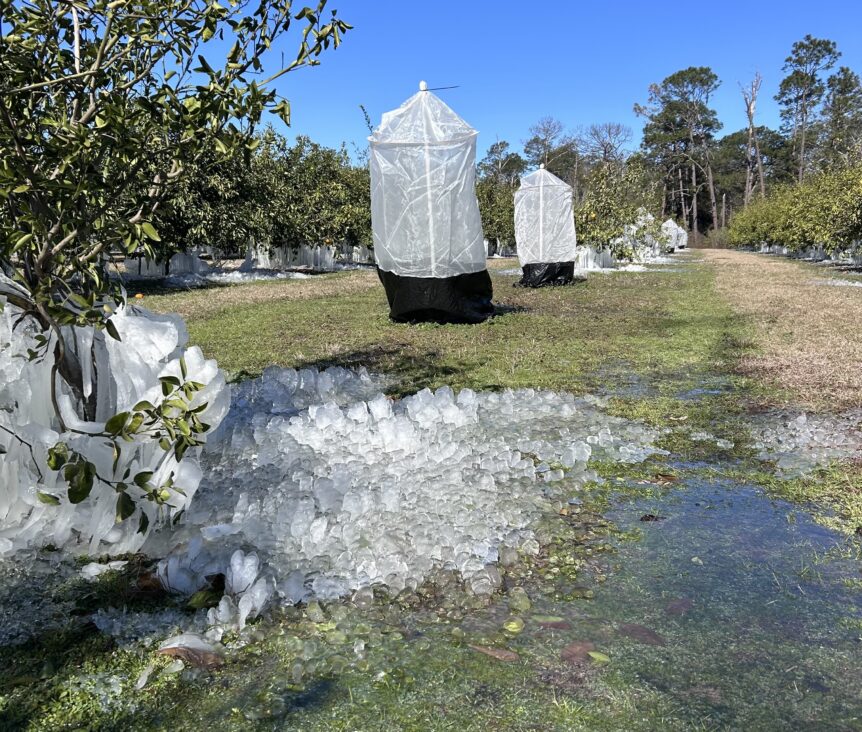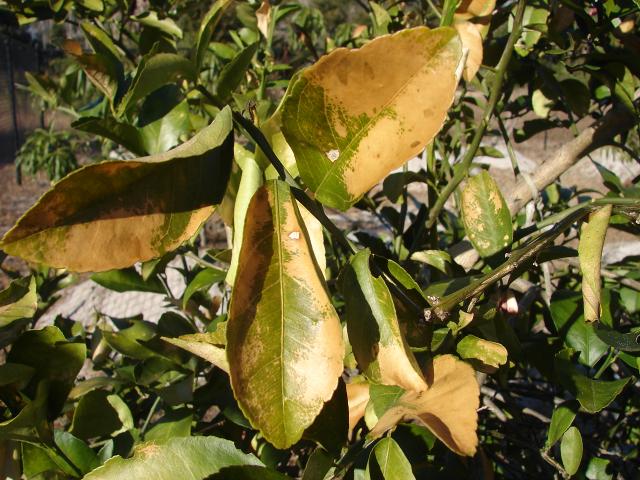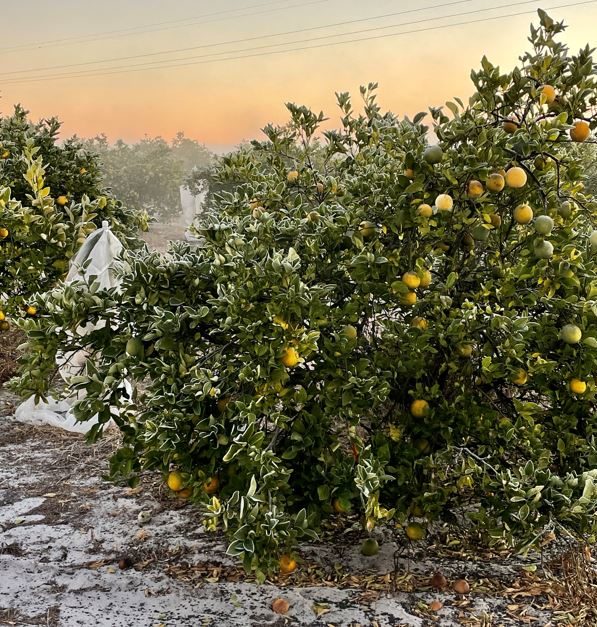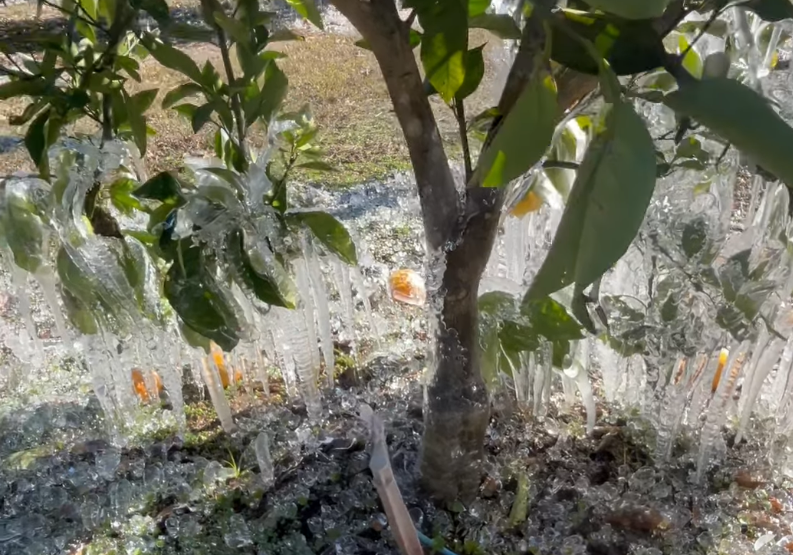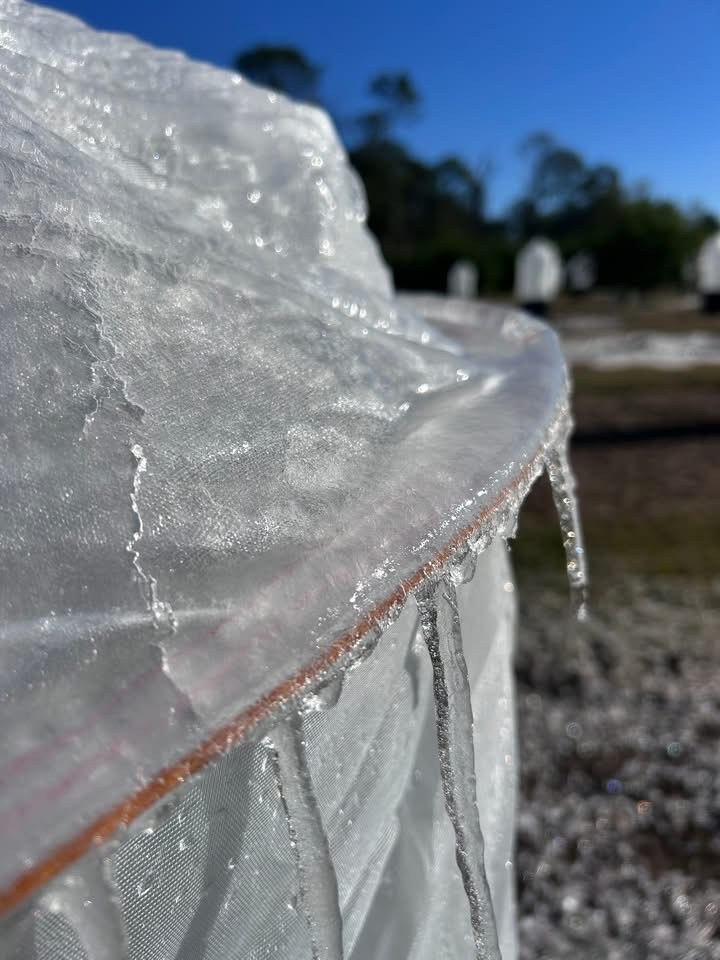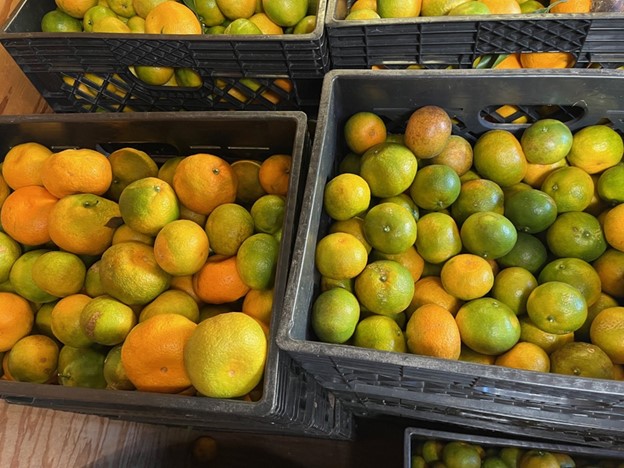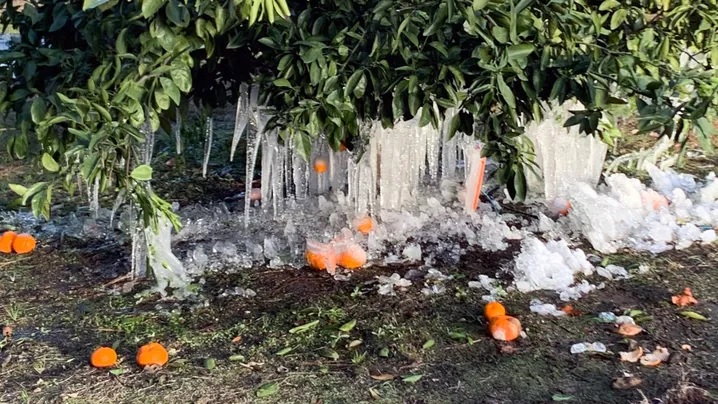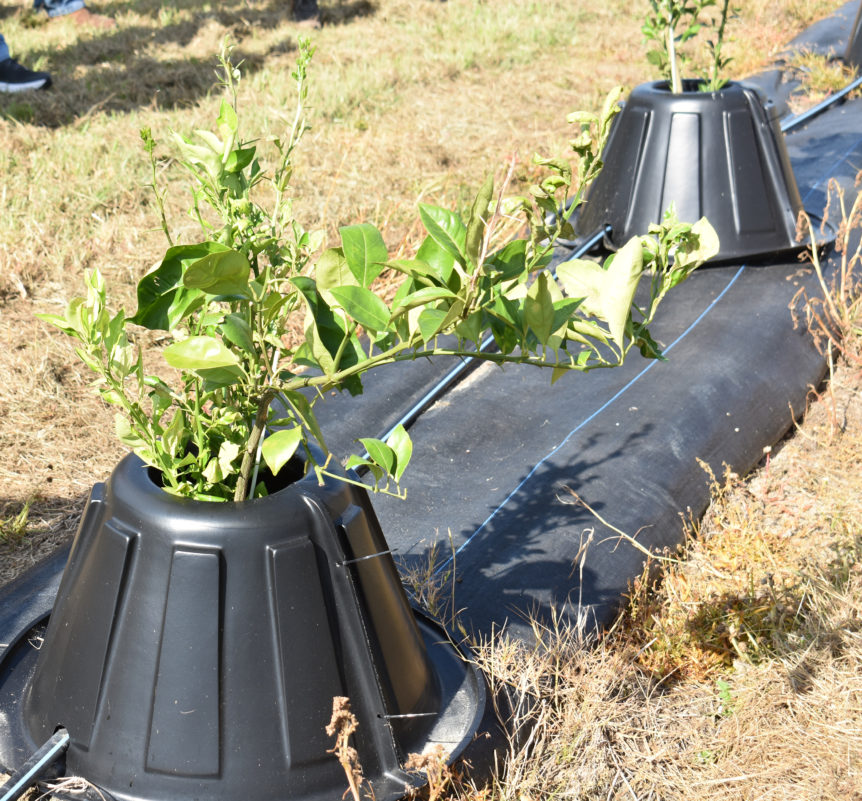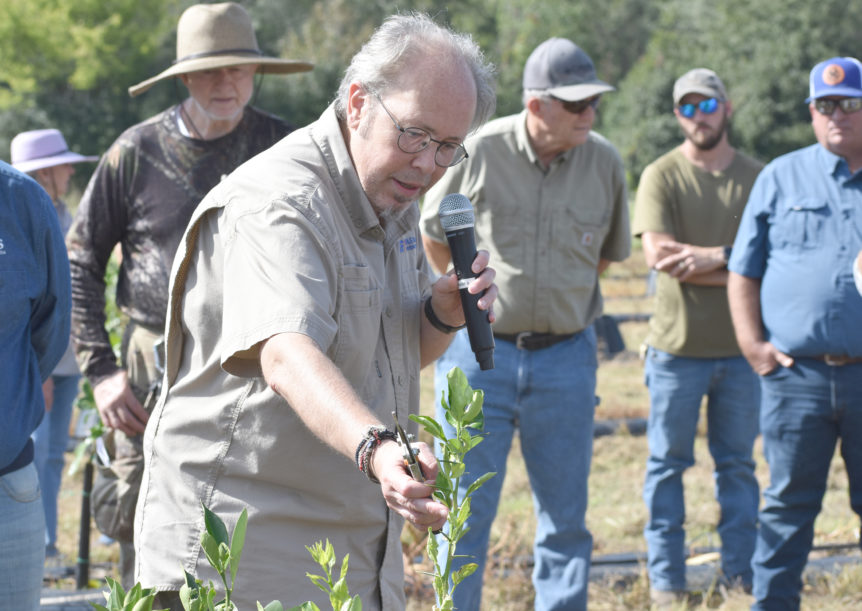A South Georgia citrus producer is upbeat after last weekend’s winter storm, which brought plunging temperatures and blistery wind conditions, threatened his grove. Jaime Patrick of Patrick Farms in Omega admitted it would still be a few days before he had a clearer view of the overall impact from the freeze. But he is optimistic. “It’s going to take us …
Draining Water From Groves Critical After Freeze
Cold-hardy citrus producers are now coping with the aftermath of last weekend’s winter storm. Water was a key tool that growers used in efforts to protect their crop from sub-freezing temperatures and blistering wind chills. Now, they need that water to drain as quickly as possible, says Lindy Savelle, executive director of the Georgia Citrus Association. “You don’t want to …
Cold-Hardy Citrus Damage Expected From Incoming Freeze
Trees in the cold-hardy citrus region have already experienced severe cold weather in 2026. If forecasts come to fruition this weekend, freezing temperatures will make things worse. Mary Sutton, University of Georgia (UGA) assistant professor and citrus Extension specialist, discussed the impact of recent sub-freezing temperatures that citrus in North Florida, South Georgia and South Alabama has been subjected to. …
Cold-Hardy Citrus Update Following December Freeze
Cold-hardy citrus in the Southeast endured sub-freezing temperatures in mid-December, the second major freeze to impact the region this season. Mary Sutton, University of Georgia (UGA) assistant professor and citrus Extension specialist, discussed how this freeze impacted citrus trees and fruit in North Florida, South Georgia and South Alabama. “We’re seeing some damage on younger trees that were probably planted …
Second Freeze This Season Hits Cold-Hardy Citrus Region
The second major freeze event of the season occurred this week in the cold-hardy citrus region. It is still too early to gauge the long-term impact of temperatures dropping to the mid-20s in the early morning hours on Monday and Tuesday. However, if growers did not implement freeze-protection measures, this event could be more serious than the first freeze that …
Cold-Hardy Citrus Spared From Sub-Freezing Temperatures
The short timeframe when temperatures dipped below freezing this week in the cold-hardy citrus region appears to have not been problematic for trees. That’s the preliminary assessment shared by Mary Sutton, University of Georgia (UGA) assistant professor and citrus Extension specialist. Sutton emphasized that the few hours that temperatures dropped into the 20s early Tuesday morning was a lot better …
Cold-Hardy Citrus Harvest Begins Early
The anticipated disappointment has become a reality for cold-hardy citrus growers; satsuma mandarins are in short supply. The predominant citrus variety grown in the region will not have much of a crop this season as harvests have already begun across the cold-hardy region of North Florida, South Georgia and South Alabama. As expected, citrus volume will be short, mostly due …
Cold-Hardy Citrus Producers Should Prepare for Potential Freeze
Cold-hardy citrus producers need to be prepared for a potential freeze event next week. Mary Sutton, University of Georgia (UGA) assistant professor and citrus Extension specialist, cautioned growers on the UGA Citrus Blog that temperatures are expected to drop in the low 30s across the region next Monday and Tuesday, and perhaps in the upper 20s in some areas. The …
Bed System Benefits Citrus Production
A bed system used in citrus groves is still under research at the University of Florida Institute of Food and Agricultural Sciences (UF/IFAS) North Florida Research and Education Center (NFREC) in Quincy. But one researcher is already convinced that the system, which includes fabric mulch, is beneficial for growers. “This system is better for them. It’s already being used in …
Pruning Young Citrus Trees
Pruning is an important management tactic that cold-hardy citrus growers need to implement, especially during the early stages of tree development. Fernando Alferez, a University of Florida Institute of Food and Agricultural Sciences (UF/IFAS) citrus horticulturist, discussed pruning during the Cold-Hardy Citrus Field Day and Workshop in Quincy on Oct. 1. “Pruning is important because it will give the tree …










